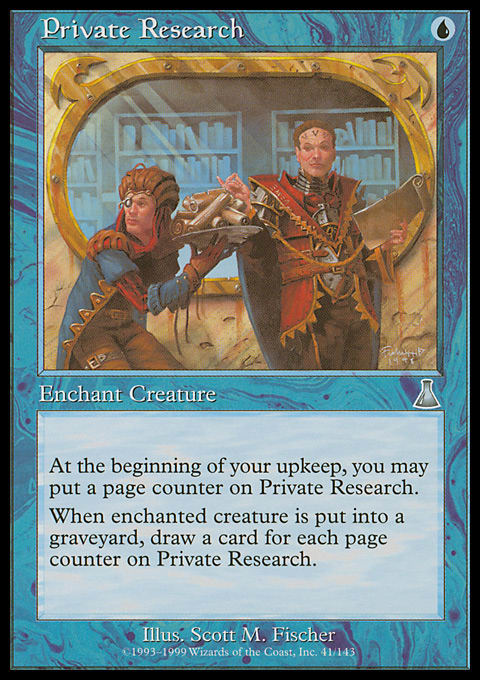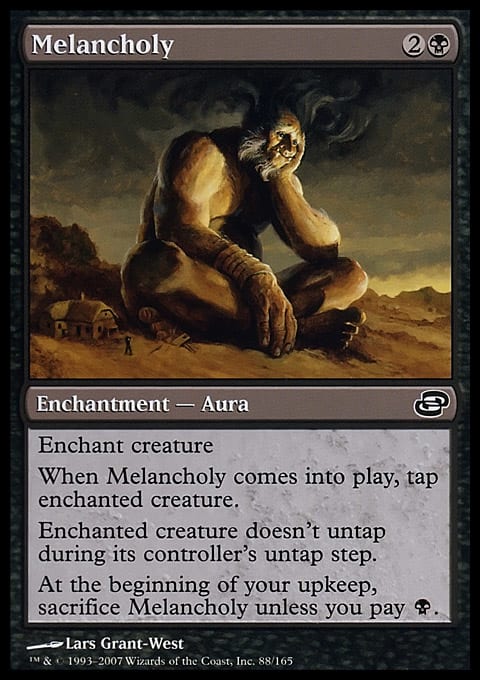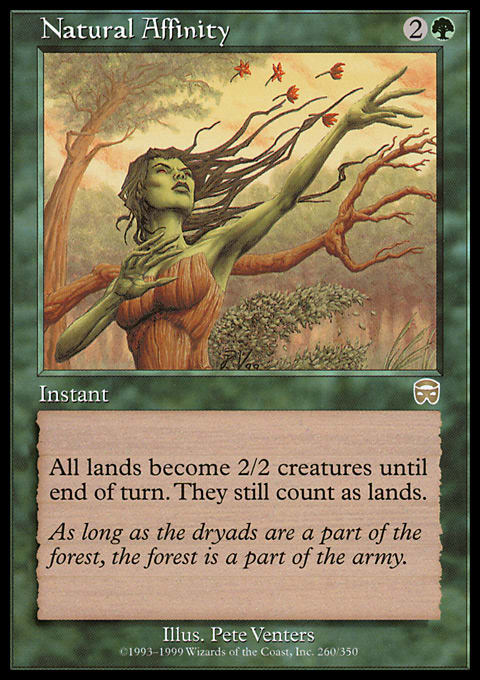As those of you who regularly read my writing or follow me on Twitter know, I am a firm believer in the positive power of gaming. I lead a Magic group at the psychiatric hospital, and I have already arranged to do my doctoral dissertation on geek and/or gaming culture.
However, although I have privately wanted to study gaming since I started graduate school, I wasn't always comfortable talking about it openly. I entered the program with a list of “respectable” interests: autism, neuropsychology, and couples counseling. I saw my gamer research as a side hobby.
I felt a similar ambivalence when introducing the Magic program at the hospital. Others were coming up with plans for cooking groups, dance groups, or creative writing groups. Again: “respectable” areas. The thought of bringing Magic up to my supervisor made me feel like I was twelve years old again, bracing myself for the same dismissive smile I saw whenever I asked my friends if I could teach them to play.
This is the same discomfort that led one of my friends to untag himself from Facebook photos of us playing Commander. This is what led one of my interviewees to be embarrassed that she met most of her friends through Magic. “ . . . [I]t’s a children’s card game,” she said. “It’s not supposed to be a thing you do to seek out meaningful relationships” (Anonymous). This is that insidious feeling: geek shame.
Before I address geek shame directly, I want to talk about our identity as Magic players. Magic is one of those games that often gets into people’s very being—for good or ill. There is a big difference between an activity that you simply participate in and one that is a core part of your identity.
Even children make this distinction. Five-year-olds and seven-year-olds were told about a hypothetical character who was either described with a verb (e.g. “eats carrots whenever she can”) or with a label (e.g. “carrot-eater”). Children who heard the character described with the label were more likely to say that the character would continue to do the activity, both in the future and in situations in which the activity was not supported by his or her family (Gelman & Heyman 491).
To demonstrate this principle, think about a game that you enjoy, but do not love like you love Magic. My favorite board game is Betrayal at House on the Hill, but I would never refer to myself as a Betrayal at House on the Hill player in any serious way. I’m just a gamer who enjoys betraying my fellow explorers whenever the opportunity presents itself. But a Magic player? Absolutely.
The Magic Player Self
Magic is a game that tends to become a passion. Researchers define passion as “a strong inclination toward an activity that people like, that they find important, and in which they invest time and energy” (Vallerand et al. 757). As Mike Linnemann pointed out in his article “Why MTG is Not Geek Chic,” both the game and the community often discourage dabblers (Linnemann). On a friendlier note, Magic also invites passion by providing deep and varied ways to engage with the game. Do you like reading about strategy? Collecting rare items? Analyzing artwork? All of these can be collected under the umbrella of Magic.
Researchers point out that “ . . . passions become central features of one's identity and serve to define the person. Those who have a passion for playing the guitar, for reading, or for jogging do not merely play the guitar, read, or jog. They are ‘guitar players,' 'readers,' or ‘joggers.' Passionate activities are part of who they are.” (Vallerand et al. 757).
Researchers are still unclear on what causes people to develop a particular passion. One researcher proposed that what he called “personally expressive activities,” similar to healthy, harmonious passions, resonate with a person’s true self (Waterman qtd. in Mageau & Vallerand 635). Magic—both as a game and as a community—seems to be especially congruent with common, geeky traits.
Geek researcher Jason Tocci, author of GeekStudies.org, identified three pervasive and longstanding perceptions of geek identity, both assigned from the outside and embraced from within: “Geek as Genius,” “Geek as Fan,” and “Geek as Misfit” (Tocci vi-vii). Magic rewards deep intellectual and emotional engagement with the game, even when taken to a degree that can seem peculiar to outsiders. As for the “geek as misfit” part—well, if you don’t feel like playing sports or jump rope during recess or going out partying on a Friday night, the solution to your problem is right there in your deck box.
Unfortunately, your true self is not your only self. You also have to deal with the desires and value judgments of other people. Self-Discrepancy Theory proposes that people become unhappy when their actual self is not living up to expectations for their ideal self (hopes and dreams) or their ought self (sense of obligation), whether those expectations come from themselves or from others (Higgins 320-321).
The Mismatch of Selves
According to Self-Discrepancy Theory, when there is a mismatch between your perception of your actual self and either your ideal or ought self, misery often ensues. The specific type of unhappiness varies, depending both on which self you think you're not living up to, and whether the standards are imposed by yourself or by others.
| Failure to live up to: | Results in: |
|---|---|
| Your own sense of how you want to be | Disappointment, dissatisfaction, frustration |
| How others want you to be | Shame, embarrassment |
| Your own sense of how you should be | Guilt, self-contempt, uneasiness |
| Others' view of how you should be | Fear, feeling threatened, resentment |
This, I would argue, is what leads to geek shame. When the people or culture around you tell you that your actual self—the self that might be a little eccentric or awkward, the self that loves Magic—isn’t living up to expectations. And, worst of all, when you start to believe them.
Changing Times
And now I ask you: Are we still receiving that message, or are we the ones carrying it on now? You may have an exception, depending on your family or social group. This seems to be especially probable if you're still in school. But what about the rest of us?
“Geek Cultures” says that, “To talk of geeks understanding their ‘misfit’ identity is to talk of grown women and men still making sense of their existence with a phrase internalized as children” (Tocci 176). Yes, Jon Finkel was publicly scorned for his Magic career by a former date (Alexander). And Dan Harmon, creator of the popular show Community, was asked by the studio not to write an episode of Dungeons and Dragons because it wouldn’t “be an accessible topic” (Harmon)—in other words, not fit for mainstream consumption.
But in the end, in both cases, the geeks triumphed in the court of public opinion. Blogs of all kinds, from CBS’s geek-oriented TechTalk (Ngak) to women’s website The Gloss (The Gloss) excoriated Finkel’s date for her behavior, and the comments were overwhelmingly in agreement. The Dungeons and Dragons episode of Community was made, and it currently has a 9.1/10 rating from its viewers (imdb.com). My professors’ and supervisors’ reactions to my therapeutic gaming ideas have ranged from accommodating to wildly enthusiastic.
So yes, we still have to deal with the occasional put-down or rejection. But I argue that most of us are being haunted by the Ghost of Shaming Past. If you find yourself embarrassed to admit you’re a Magic player, ask yourself: “Who told me that Magic is for losers/is a waste of time/will stop me from finding a romantic partner? Where did I pick up this sense of what I ‘should’ be?” If you love being a Magic player, you should be a Magic player with all your heart. Anyone who says otherwise is just wasting your time—and that is especially true if you’re the one saying it.
Works Cited
- Alexander, Chris. “Finkelgate’—Date With a Magic World Champion.” Official TJ Collectibles Blog. Wordpress. 1 September 2011. Web. 25 February 2012.
- Anonymous. Personal interview. 24 February 2012.
- Gelman, Susan A. and Heyman, Gail D. “Carrot-Eaters and Creature-Believers: The Effects of Lexicalization on Children's Inferences About Social Categories.” Psychological Science 10.6 (1999): 489-493. Web. 24 February 2012.
- Harmon, Dan. Interview by Todd VanDerWerff. “Dan Harmon Walks Us Through Community’s Second Season.” A.V. Club. n.p. 9 June 2011. Web. 10 July 2011.
- Higgins, E. Tory. “Self-Discrepancy: A Theory Relating Self and Affect.” Psychological Review 94.3 (1987): 319-340. Web. 19 February 2012.
- Linnemann, Mike. “Why MTG is Not Geek Chic.” GatheringMagic. CoolStuffInc.com LLC. 26 October 2011. Web. 12 February 2012.
- Mageau, Geneviève A., Robert J. Vallerand, Julie Charest, Sarah-Jeanne Salvy, Nathalie Lacaille, Thérèse Bouffard, and Richard Koestner. “On the Development of Harmonious and Obsessive Passion: The Role of Autonomy Support, Activity Specialization, and Identi?cation With the Activity.” Journal of Personality 77.3 (2009): 601-646. Web. 19 February 2012.
- Ngak, Chenda. “Gizmodo Mean Girl Bashes OkCupid Date for No Reason.” CBSNews. CBS Interactive, Inc. 29 August 2011. Web. 29 August 2011.
- Peck, Jamie. “Girl Uses Magic Blog to Make Fun of Nerds.” The Gloss. B5 Media. 30 August 2011. Web. 24 June 2011.
- Vallerand, Robert J., Céline Blanchard, Geneviève A. Mageau, Richard Koestner, Catherine Ratelle, Maude Léonard, Marylène Gagné, and Josée Marsolais. “Les Passions de l’Âme: On Obsessive and Harmonious Passion.” Journal of Personality and Social Psychology 85.4 (2003): 756-767. Web. 19 February 2012.
- Waterman, A. S. “Personal expressiveness: Philosophical and psychological foundations.” Journal of Mind and Behavior 11 (1990): 47–74.

























